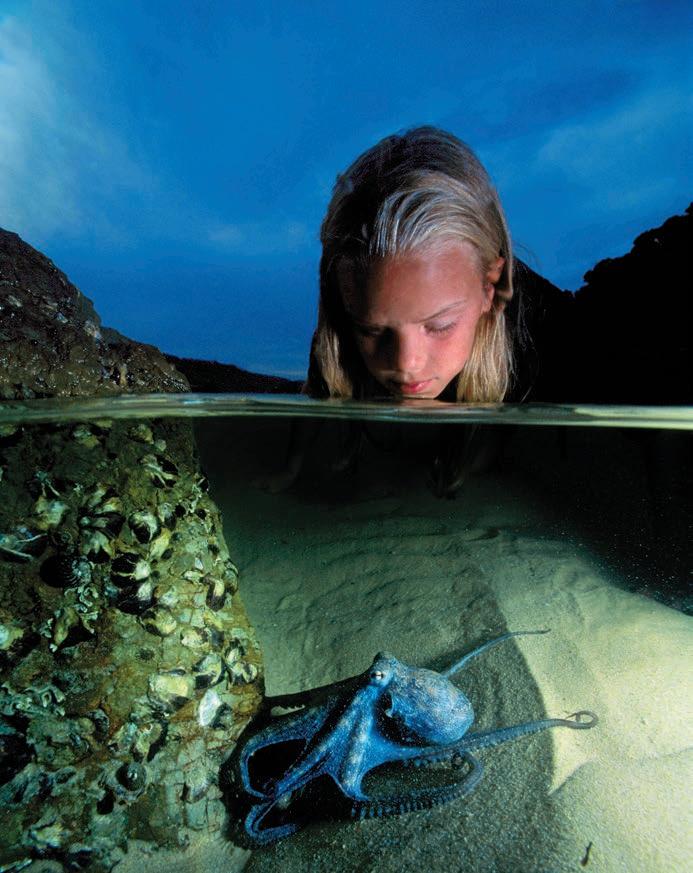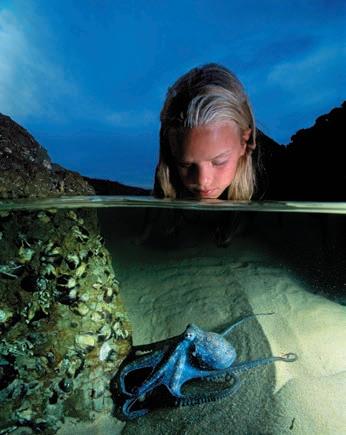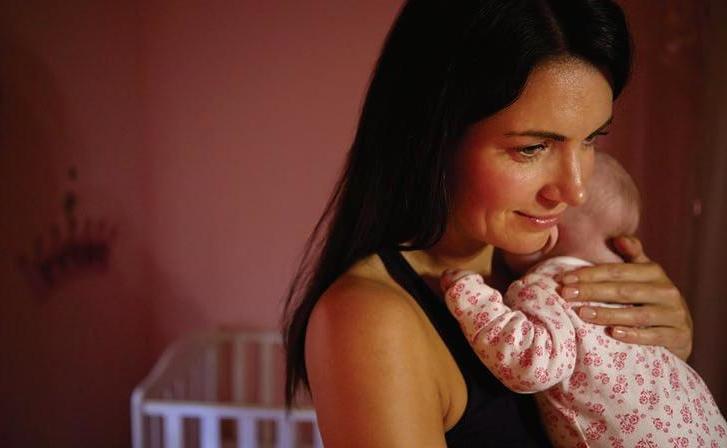
5 minute read
Quiet Kids in an extroverted world
BY ADRIENNE GARSIDE
Amongst my childhood photos is one of me at a Christmas party aged about five. There I sit, surrounded by all the stuff kids are supposed to love – presents, games and a bunch of smiling children. I look like I just witnessed someone running over a puppy. Though I have grown and changed in many ways since then, I remain an introvert at heart. The list of things I would rather do than attend a party is very, very long. Undergoing minor surgery is on there.
I am a relatively quiet, solitary person despite persistent efforts to coach these traits out of me. Parents, teachers and other interested adults know that outwardly confident people tend to have an easier time making friends, landing jobs and forming romantic partnerships. We need only look at our political and business leaders to see that, for better or worse, being an extrovert is idealised in Western cultures.
Yet medical research tells us that personality traits are at least partly genetic. If our brains and nervous systems are literally wired differently, why do we try so hard to resist these contrasts? Confidence is based in selfacceptance. It is very hard for a child to learn to love and nurture themselves properly when well-meaning adults are trying to mould them into somebody else.
Nurturing a quiet confidence Forcing an introverted child to ‘get over it’ and take centre stage is a sure recipe for unhappiness, shame and often failure. It is far healthier to focus attention and praise on what your child does well. Accept that their skills and interests may differ from your own. Let them know that in many settings, traits
such as cautiousness and reflectiveness are highly valued. Make a point of encouraging your child verbally when they do try things that challenge them, like talking to someone they don’t know. If your child is a little older, help them plan ahead to make new experiences less daunting. Remind them that feeling nervous about trying new things is a normal part of being human, and that many people feel the same way, though they may not show it.
Socialising in controlled doses While extroverts draw energy from social interactions, introverted children tend to find them physically and emotionally draining. (I hid in spare rooms and even faked illnesses to get time out during sleepovers. I felt ashamed of this at the time but now recognise it as self-care.) Observe your child’s limits in this regard and check in with them if you’re not sure. It isn’t coddling to help your child feel comfortable with new situations, places and people. Accept that they might need extra alone time and privacy, especially after prolonged group activity. Recognise that they may prefer just a couple of friends they are close to instead of a large circle. As in so many aspects of life, it’s quality, not quantity that counts.
When extra support is needed It might be helpful to discuss your child’s quiet nature with teachers so they can provide appropriate support. For example, your child may prefer small group interactions rather than being called upon in front of the whole class. Some children simply prefer to learn by listening and observing – it doesn’t necessarily mean they are disengaged.
It is also important to remember that social withdrawal can be a symptom of childhood anxiety and depression. If you notice a sudden or significant behavioural shift, or if your child is chronically avoidant, consider seeking support from your school’s welfare team or from clinical professionals.
Adrienne Garside works for Iris Foundation, a charity that aims to reduce the risk of suicide on the Central Coast. The Foundation achieves this by facilitating and supporting awareness campaigns, programs and partnerships which enhance community connectedness and well-being. For more information, please visit: www.irisfoundation.org.au.
CENTRAL COAST MARINE DISCOVERY CENTRE
10am–4pm Mondays, Weekends & School holidays 02 4385 5027
Clare Marcangelo REGISTERED NUTRITIONIST Caring, practical treatment plans for your family. Specialising in childhood behavioural issues, learning and anxiety. Working with families for over 20 years
COVERED BY MOST PRIVATE HEALTH FUNDS Phone 0404 795 677 to book or go to www.erinanutrition.com.au FOR MORE INFORMATION ATMS29747 ABN 89456352713
Explore | Educate | Protect

Classes held at Terrigal for girls of all ages from only $6 per c lass. ½ hour Preschoolers Dance Class only $4. Now enrolling for 2020 www.ccmdc.org.au
Explore | Educate | Protect www.ccmdc.org.au
Photo: Robb Westerdyk
If you’re looking for summer holiday adventures for the kids, then look no further than Terrigal’s own Central Coast Marine Discovery Centre.
We have been operating in the local community since 2010, and were established to promote the education, protection and enjoyment of the coastal environment for all age groups. We provide an opportunity to interact with and learn about the marine world with hands-on displays, aquariums, seminars, craft, education programs and external activities. The Centre runs in-house, school and tour programs. Many of our activities also give grown-ups a chance to explore special coastal environments with rock pool rambles and our signature Wings, Whales & Wildflowers Tours.
We are committed to reducing our impact on the environment, and to show that we are on the right track, we have recently been recognised as a Climate Action Business and gained Eco-tourism accreditation with Ecotourism Australia.
The Centre is located on Terrigal Drive, in Rotary Park, next to Terrigal Lagoon. We are open from 10-4pm on weekends, Mondays and every day during the school holidays. Groups may book a visit at any time. We look forward to welcoming you to the centre or on one of our tours soon. Supported by Go to page 38 for Summer Holiday Programs timetable We also have classes for mums Physie is a combination of various dance types all choreographed by BjP Physical Culture to the latest, age appropriate music. Increase your confidence, fitness and flexibility while making new friends and having lots of fun.
1st lesson free for all new members
Contact: Melinda Morris Phone: 0412 004 397 Email: twphysie@hotmail.com www.terrigalwoodportphysie.weebly.com
AVOCA NATUROPATH
Herbal Medicine Nutrition Fertility Management Children’s Health Wellness Programs
Diana Arundell UNIVERSITY QUALIFIED 118 Avoca Dr, Kincumber 2251
Phone 0410 465 900 www.avocanaturopath.com.au









